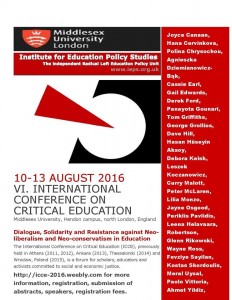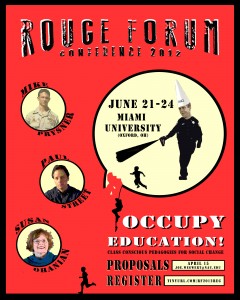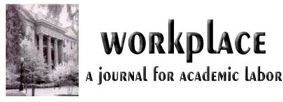Heed the Call of the Dreamers! Imagination and the Frontiers of Critical Scholarship
Guest Editor
Abraham P. DeLeon
University of Texas at San Antonio
What happens when critical scholarship takes seriously, the potentials imbued within a collective social imagination? What occurs when radical ways of knowing and doing activate the imagination that points to a different kind of past, present, and future? These kinds of questions are what I hope will inspire the papers I am seeking for this special issue in Critical Education. The empiricism that dominates much of academic scholarship, especially within the social sciences and education in particular, casts aside the transformative potentials of the imagination. Concerned too much with measurement, validity, replicability, and fundable projects that reify a particular kind of reality, mainstream scholarship does not engage with an imaginary that animates humanity’s potentials that is radical, creative, imaginative, and weird. The imagination runs through our social body like connective tissue, capillaries of radical potentiality. Our history is imbued with the imaginary, crossing not only fictional works that appear in film or literature for just two examples, but also that have animated a utopian impulse of a radical kind of difference: a different future, a different world, a different way of being with each other.
The imagination cannot be reduced to simply cognition or a neuro-functionality that activates a purely Western, scientific understanding. A radical social imagination can begin from a place of nowhere (Ricoeur, 2024), a non-space that allows a new kind of freedom of form to materialize that exists beyond scientific discourses that try to ensure its capture. Like Sartre’s (1948) work that the imagination has the potentials for negation, freedom, and engagement with nowhere, this special issue wants to explore the limits and potentials for the imagination for a radical and different kind of social imaginary. This space of nowhere becomes a productive frontier for larger questions about the future, the potentials for social action, and the possibilities for new epistemological, ontological, and pedagogical encounters. This special issue is a call for us to begin a new kind of radical project that attempts to break free from the current shackles of this intellectual culture, what Foucault (1998) might have called “inventing a new body”, one that is “volatile” and “diffused” (p. 226-227). We heed the call of the dreamers and allow the imagination to burst furth in new scholarly directions.
Here are some possible provocations to guide a submission, but are just meant to act as creative sparks.
I welcome any submission with a creative and imaginative vision for the past, present, and future.
What have been past historical examples by a variety of political, creative, or other affinity groups animated by the imagination?
- What would it mean to embody a rhetoric of the future?
- How can the avant-garde animate scholarship in new imaginative directions?
- Do historical or cultural myths possess a generative moment that can inform social theory in fundamentally new ways?
- What happens when social theory engages with the imagination? What kind of transformations are possible?
- How can the imagination inform political organizing in fundamentally new ways?
- What happens with social theory when it embodies the fictional worlds of a social imagination?
- What become the limits of inquiry when the imagination is activated?
- What would it mean to decolonize the future? How do indigenous ways of knowing inform our futures?
- What kind of alternative futures emerge when we utilize an imaginative lens?
- What are some examples of indigenous or non-Western forms of imagination that are instructive or visionary?
- What do specific genres of fiction (horror, science fiction, fantasy, historical fiction, romance) offer the critical scholarly project?
- How can fiction and creative writing inform social and critical theories?
The editor is available for any inquiries or questions on ideas about potential manuscripts and encourages conversations around potential ideas. Please email him at abraham.deleon@utsa.edu.
Manuscripts will be due on May 1st, 2025. Please see the guidelines for submissions at Critical Education: https://ices.library.ubc.ca/index.php/criticaled/about/submissions#authorGuidelines
References
Foucault, M. (1998). Aesthetics, method, and epistemology: Essential works of Foucault, 1954-1984, Vol. 2. (R. Hurley and Others, ). The New Press.
Ricœur, P., Taylor, G. H., Sweeney, R. D., Amalric, J.-L., & Crosby, P. F. (2024). Lectures on imagination. The University of Chicago Press.
Sartre, J.-P. (1948). The psychology of imagination. (B. Frechtman, Trans.). Philosophical Library.


 Follow
Follow






